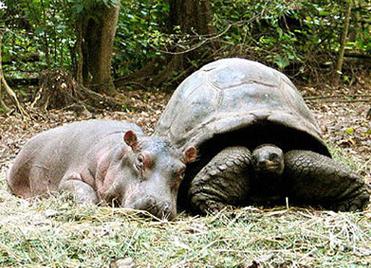Hi M,
It's nice to hear from D. Good, old friends seem in short supply in California in my life, perhaps because I've moved a lot in life too, - and people are moving all around the world these days a lot. I think of Tolkien's Inkling circle (https://en.m.wikipedia.org/wiki/Inklings) as an example of good old friends, centered around Oxford, and while I have many good old friends on Cuttyhunk, for ex., I see them only for a few weeks in the summer if that, and not centered around a pub, and writing community in the British Isles. (But Cuttyhunk is pretty great friendwise nevertheless). While I could grow a circle here, and perhaps one that is Stanford related, this would take focus. Dick Robb' MDs book of essays "Brookline Thursday Club Essays" mentions their social process for meeting - and this could be a starting place for this.
I think of you and Dad as having a good circle of friends, some old, in Pgh (and on Cuttyhunk), in the 70s, when I was a teen, - having dinner parties out here could be one way of creating this further. A loving partner could help generate this too with me together. ?
There's a bit of a friendly good British ethos I have in mind re old friend generation and culture too. Realistically though, and Lacan-wise, maybe (old) friends aren't realistic (G.A. MD, whom I learned much from, was cynical about this, I'd say, but had old friends). On the othervhand I might have to be a good friend to have them, and giving (things away) might be part of this - like things I grow in a garden (something that came to mind partly in visiting Ann), or beer I might make, for example.
And what's the old gem of a song: 'Make new friends, but keep the old, one is silver and the other gold." ... nice to have heard from D.
What are you up to friendship wise -besides going on fun musical trips with them ? :)
L,
Scott
***
Dear Jorge,
Great to meet and talk with you (https://haas.stanford.edu/people/jorge-de-luna) yesterday after Dr. Achotegui's talk "Migratory Intelligence: Psychological and Psychosocial Strategies to Face Migratory Stress and the Ulysses Syndrome" - http://events.stanford.edu/events/785/78577/ - and thanks for your excellent questions, observations and knowledgeable experience at both Kaiser and Stanford Medicine with sound psychosocial strategies for migratory people and populations.
Am curious how best to talk further and to create even online OpenCourseWare, and even re clinical care in these related regards:
https://wiki.worlduniversityandschool.org/wiki/Psychiatry
https://wiki.worlduniversityandschool.org/wiki/Psychotherapy
https://wiki.worlduniversityandschool.org/wiki/Psychology
https://wiki.worlduniversityandschool.org/wiki/Psychoanalysis
And in subjects we could wiki create - https://wiki.worlduniversityandschool.org/wiki/Subjects - and in the Spanish language - https://wiki.worlduniversityandschool.org/wiki/Spanish_language (planned in Spanish) - in conjunction with MIT OCW for online courses for degrees - https://ocw.mit.edu/courses/translated-courses/spanish/ - (https://ocw.mit.edu/courses/translated-courses/).
World University and School seeks to offer online medical degrees with online teaching hospitals with online clinical care in all ~200 countries' official and main languages (as well as Law, Ph.D., Bachelor, and I.B. high school degrees). And WUaS is like CC-4 MIT OpenCourseWare in 5 languages with Wikipedia in 301 languages. Since MIT doesn't have a medical school or a law school, WUaS is seeking to collaborate with Stanford Medicine and Stanford Law schools in these regards (and I had a 30 minute talk with Stanford Medicine's Chair Bob Harrington last autumn - https://profiles.stanford.edu/robert-harrington). And besides English, Spanish and Chinese are two of WUaS's pilot languages. Much of both WUaS classes, as well as even "psychosocial therapy" for migratory populations, and even very large numbers of people, would take place in group video conferencing and in other ways online. And World University and School seeks to become a major academic employer in each of all ~200 countries' official / main languages, and indeed in all 7,097 living languages. WUaS also has a specific focus on Africa.
Do you happen to know Linda Sanchez-Hernandez - https://www.linkedin.com/in/linda-a-sanchez-hernandez-6b914221/ - who worked at the Quaker American Friends' Service Committee with 67 Sueños program, went to UC Berkeley for her undergraduate degree, is originally from a Zapotec speaking (https://wiki.worlduniversityandschool.org/wiki/Zapotec_languages) area of Mexico - and is really great (and smart). I know Linda from when I was holding WUaS hive meeting spaces at the AFSC in SF over a few years. (She's actually seeking perhaps to begin studying for a law degree).
How might we communicate further about this? Thank you.
Best regards,
Scott
--
- Scott MacLeod - Founder & President
- World University and School
- http://worlduniversityandschool.org
- 415 480 4577
- http://scottmacleod.com
- CC World University and School - like CC Wikipedia with best STEM-centric CC OpenCourseWare - incorporated as a nonprofit university and school in California, and is a U.S. 501 (c) (3) tax-exempt educational organization.
*
Dear Joseba,
Thanks for your edifying "Migratory Intelligence: Psychological and Psychosocial Strategies to Face Migratory Stress and the Ulysses Syndrome" talk - http://events.stanford.edu/events/785/78577/ - yesterday.
How might we communicate further about teaching, for example, "migratory Intelligence," and even facilitating online clinical care online (and first in Spanish and African languages), and re the 'need' (Jorge's word after your talk) for psychosocial strategies in these regards; and even with regard to Spain World University and School - https://wiki.worlduniversityandschool.org/wiki/Spain (planned in Spanish) and in our planned School of Psychiatry in the Spain Medical School at WUaS? In these regards, please see too my email to Jorge below. As a Professor of Psychiatry at the University of Barcelona in Spain, would you be open to teaching a course in psychiatry online in Spanish in these regards at some point (which would also be MIT OCW and Stanford Medicine-informed)?
I was particularly interested in your word 'ambience,' as informing the resilience of the Ulysses Syndrome in migratory populations, in contrast to (structures of) personality, and the prospects for digital communications, the internet, and even virtual worlds, for eventually shaping ambience. Have blogged a bit about psychotherapy here - https://scott-macleod.blogspot.com/search/label/psychotherapy - with a slight Lacanian focus - https://scott-macleod.blogspot.com/search/label/Jacques%20Lacan%20MD.
Am grateful for your Freudian-informed talk yesterday, and its focus on relieving the suffering of migratory populations.
Thank you again.
Best regards, Scott
*
Dear Joseba and Jorge,
In a related vein, and as a follow up, this Harvard article on "Why mental health care is critical for those fleeing conflict https://hrvd.me/leftt13011 #WorldRefugeeDay" just popped up in Twitter - https://twitter.com/Harvard/status/1009538967203647494 - which I reposted here - https://twitter.com/WorldUnivAndSch?lang=en.
Thank you again for your edifying Stanford talk, and very nice to meet you both.
Regards,
Scott
https://twitter.com/WorldUnivAndSch?lang=en
https://twitter.com/WUaSPress
https://twitter.com/HarbinBook
https://twitter.com/scottmacleod
Languages-World Univ: https://twitter.com/sgkmacleod
https://twitter.com/TheOpenBand (Berkeley)
*
https://en.wikipedia.org/wiki/Interspecies_friendship
https://en.wikipedia.org/wiki/Friendship
https://en.wikipedia.org/wiki/Social_grooming
...


